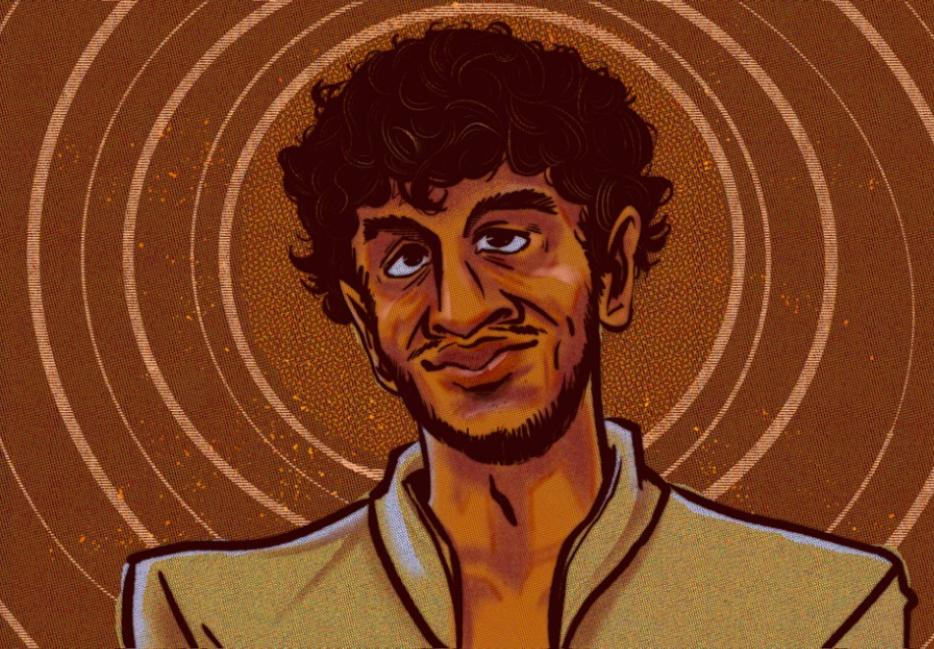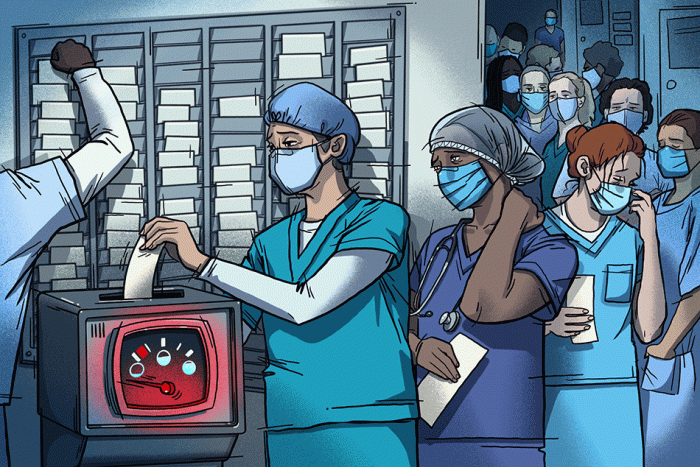Welcome to Wayward Watching, a column on the seen and unseen in film.
There is a moment in Kenneth Lonergan’s Margaret (2011) that seems straight out of a CNN prime-time debate, although the scene unfolds inside a high school classroom in New York. Some years after 9/11, a group of measled-looking white teenagers gang up on a classmate, Angie, whose “mother’s family is from Syria,” the moment she starts articulating what her offshore relatives feel about George W. Bush’s decision to invade Afghanistan and Iraq. The leader of the bullies is Lisa, the protagonist of the film played by Anna Paquin. Like many adult Americans circumscribed by their social experience, Lisa fails to see that those who disagree with her aren’t always deceitful or intellectually deficient. “Why are you defending someone who murdered three thousand people?” she thunders at Angie. “I’m not,” Angie protests, but you can tell from the look on Lisa’s face that she doesn’t recognize the difference. Another classmate points out that all Angie did was express what a few people in her extended family think, and that the subsequent fracas to shut her down felt somewhat like censorship. “It is censorship,” the timid class instructor chimes in. “It’s not censorship,” Lisa replies. “Our class is not the government.”
Contrary to the reams of self-help tomes sold on the premise that we continue to evolve emotionally all our lives, Margaret presents the scarier possibility that our personalities might well have congealed years ago, when we were queuing up with our bags every weekday outside a school parking lot. What has changed since is our bodies, not our minds. Lisa copes with the aftermath of watching a woman die on the street by first lashing out at her single mother and her own friends, then crusading to blame someone for the accident. Would someone a decade or two older have behaved any different? The cops and her mother ask her to be mindful of her power as an eyewitness, to understand that her testimony would decide the fate of the accused bus driver (played by Mark Ruffalo) who has mouths to feed. But Lisa perceives this as adults just empathizing with their own. She’d rather focus on the fact that the dead woman once had a daughter, also named Lisa. How could that be a mere coincidence?
The longish screen time allows Lonergan to trace the ripple effects of Lisa’s unravelling: by the time she shows up unannounced at her math teacher’s bachelor pad and later tries to scare him in public by lying about having an abortion, you realize that she can only be mindful of the power she wields by fully testing its limits. At one point, Lisa’s father, who has married again and lives in California, offers to introduce her to a few “strapping young” seventeen-year-old boys when she visits him next. “I don’t really go for the California type,” Lisa replies. But it’s more that she doesn’t trust her flaky father to keep his word, and she probably wouldn’t be visiting him for a while anyway. In California, she wouldn’t be the centre of the story.
In Licorice Pizza (2021), Alana, in her mid-twenties, does go for the California type. And what’s worse, the boys she ends up with are invariably a decade younger—not even seventeen. Gary Valentine, a veteran child actor at fifteen, can only wait for his chance as Alana dates his teen nemesis, helps him start a business selling waterbeds, and refuses to admit her feelings for him. In one of the film’s more baffling sequences, Gary introduces Alana to a casting agent, who tells her to consider doing nude scenes. Later, Gary complains that Alana seems comfortable with the idea of undressing for the camera, but she has never stripped in his presence. “Do you really want to see my boobs?” Alana asks, and goes on to indulge him.
It could be that couplings of this sort were commonplace in Hollywood fifty years ago, but the film suffers from a discernible lack of motive. Paul Thomas Anderson, the director, seems to think it’s enough to have Alana wonder once if “it’s weird that [she] hang[s] out with Gary and his friends all the time.” The adult men she bumps into are all caricatures: there is the photographer who slaps her ass, an aging actor predictably obsessed with his fame, and a politician who uses her as a cover for his secret boyfriend. But why would those experiences persuade Alana to settle for Gary? Alana’s life seems stuck in a perpetual adolescence. She still lives with her parents and two sisters in Encino, drifting half-seriously between jobs. Gary, on the other hand, is already building a life away from the silver screen. Once the demand for waterbeds fizzles out, he opens a pinball parlour in Westwood. And yet, one wonders about the deeper impetus to figure out a side hustle at fifteen.
Both Margaret and Licorice Pizza unfold through the eyes of juvenile protagonists, and both seem to grapple with the extent to which teens can be portrayed as adults. Lonergan’s vision is more expansive. The screenplay manages to sidestep the accusations that Lisa intermittently hurls at other characters, accusations that sound true but somewhat distort the situation. Her mother, an actress, doesn’t just care about her “dumb play”; her classmate Angie wasn’t “defending someone who murdered three thousand people.” Moments after the icky encounter with her math teacher, Lisa promises not to tell anyone what happened. “I totally initiated the whole thing,” she declares. Another distortion.
In Licorice Pizza, Anderson establishes the age gap between the lead characters in the opening scene, but proceeds to ignore it for the rest of the movie. The viewer is supposed to interpret their relationship any way they want, much like another character, Jerry, a white man who inexplicably slips into a fake Japanese accent while speaking in English to his wife, Mioko. In an interview, Anderson has said that he was careful not to cross any lines while filming: “There isn’t a provocative bone in the film’s body.” And indeed, the film is best described as a frictionless romance, watchable mostly for the performances. Then again, perhaps a movie made by a grown-up about teenagers can never quite capture the forlorn chasm between being an adult and becoming one. What remains out of grasp is the not knowing, the wondrous ignorance about the ways of the world.






